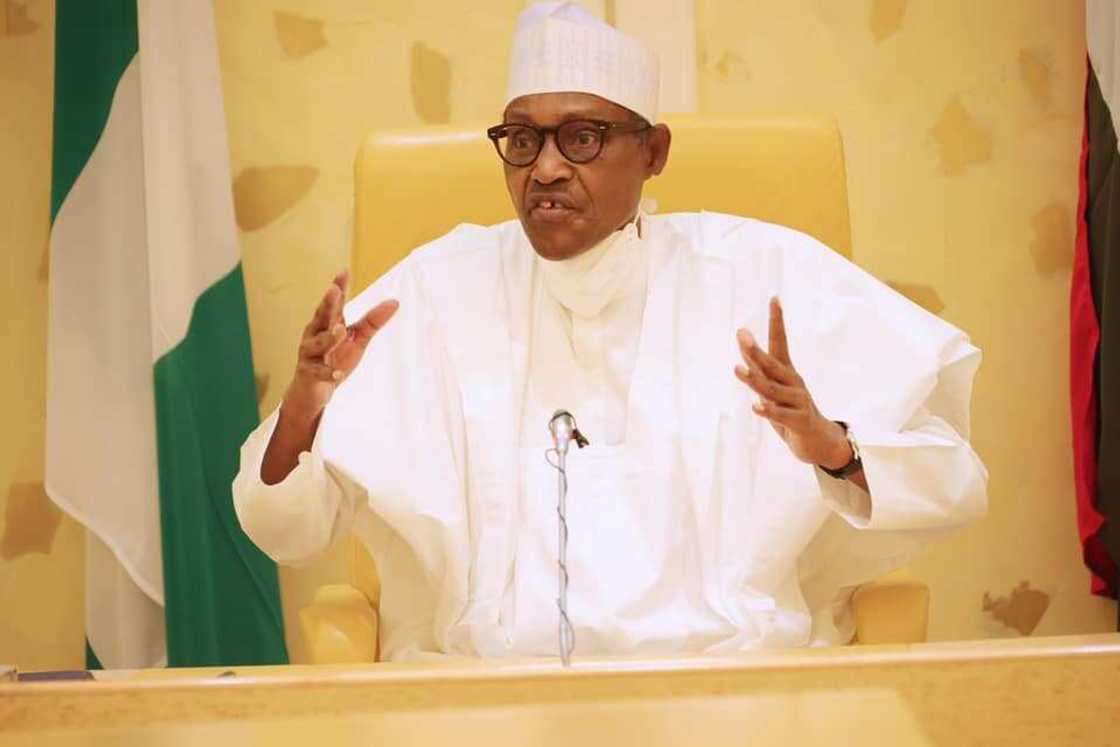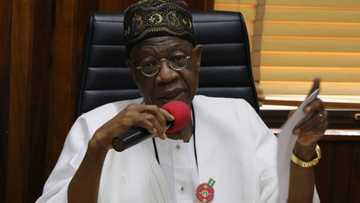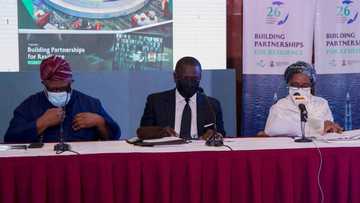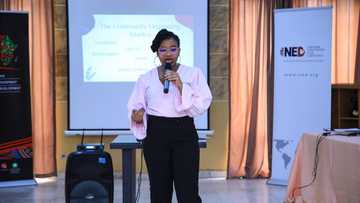How FG Will Create 21 Million Jobs, Lift 35 Million Nigerians Out of Poverty by 2025, Osinbajo Reveals
- Vice President Yemi Osinbajo has revealed the plan the federal government has for Nigerians and how it will be achieved
- Osinbajo stated that the New Development Plan is an initiative that will create more jobs and lift Nigerians out of poverty by 2025
- Meanwhile, the plan according to the VP would kick-start with labour intensive interventions in agriculture, housing and solar power installations
Abuja- The Federal government has disclosed that the new National Development Plan will create over 21 million jobs and lift 35 million Nigerians out of poverty by 2025.
Speaking on Monday, October 25, in Abuja at the Nigerian Economic Summit (NES), the Vice President, Prof Yemi Osibanjo said that the new plan was part of the government response to the COVID-19 pandemic in supporting Small and Medium Enterprises (SMEs) to create jobs and wealth, The Nigerian Tribune reported.
Osibanjo explained that the Economic Sustainability Plan also served as a bridge between the Economic Recovery and Growth Plan and the new medium-term National Development Plan.

Source: Facebook
He said:
Do you have a groundbreaking story you would like us to publish? Please reach us through info@corp.legit.ng!
“This new Plan is nearing finalisation and was developed through an inclusive process that brought together a broad range of actors and stakeholders from across all sectors of society. “And this is crucial, growth figures are meaningless if they do not translate to good-paying jobs, and improved standard of living for our people. The question of course, I insist, must be answered, regarding all our policies, is what they mean for the creation of wealth and human capacity development.”
The VP stated further that the new Plan incorporates aspects of the “National Poverty Reduction with Growth Strategy which was articulated as a guide towards achieving our poverty reduction target.
“The starting point for the implementation of the Strategy is the realisation that increased employment is an indispensable tool for reducing poverty. It is for this reason also that labour-intensive sector like manufacturing is also receiving priority attention.
Osibanjo explained further that “labour intensive interventions in agriculture, housing and solar power installations which are still ongoing will also boost domestic demand, especially for local products, a report by The Punch also indicate.
He affirmed thus:
“This project is particularly important in the context of climate change and in enabling Nigeria to generate renewable electric power against the background of its nationally determined contribution towards net-zero carbon emissions by 2050.
“The broad objectives of the new Plan are to diversify the economy, invest in critical infrastructure, build human capital and improve governance and security. The intention is to achieve broad-based and inclusive GDP growth in order to create 21 million jobs and lift 35 million people out of poverty by 2025."
On her part, the Minister of Finance, Budget and National Planning, Dr Zainab Ahmed said the government was creating enabling environment for businesses to succeed.
FG's railway business makes N1.08billion amid road insecurity
Meanwhile, Legit.ng had earlier reported that the Nigerian Railway Corporation (NRC) made N1.08 billion in three months as more Nigerians turn to train transport amid rising security in the country.
The amount was generated in the second quarter, which falls between April to June. During this period, a total number of 565,385 passengers was recorded by NRC.
It was gathered that the railway traffic rise rose by 422.3% when the second quarter of both last year (108,238 passengers) and 2021 are compared; this means 457,147 passengers switched to railway transport within one year.
Top 8 states that can't survive without support from Federal Allocation
Earlier, Legit.ng reported that state governments in Nigeria get the revenues to fund their recurrent and capital expenditures from federal allocations and Internally Generated Revenue (IGR).
While some are viable enough to survive without the federal allocation, there are others who can't do with the handouts from the central government.
The Annual State Viability Index (ASVI) by Economic Confidential has shown some states that can't do with federal allocation.
Source: Legit.ng






